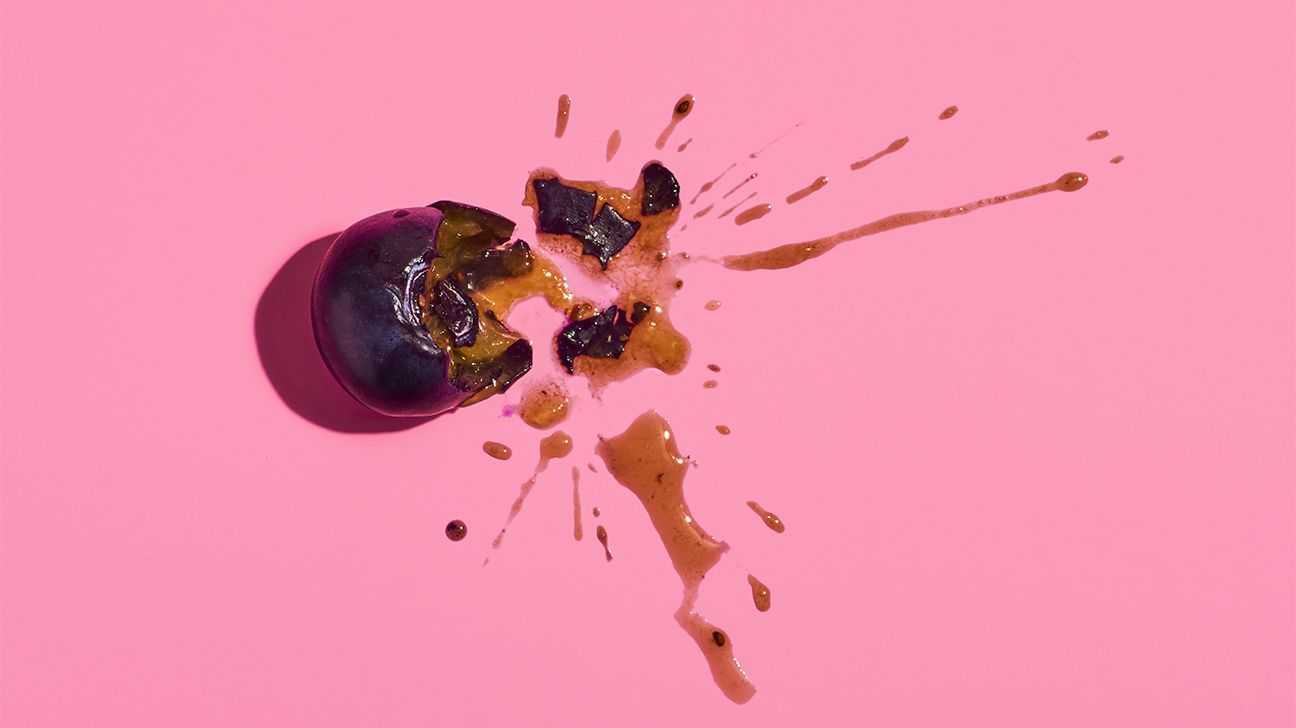We include products we think are useful for our readers. If you buy through links on this page, we may earn a small commission. Here’s our process.
Greatist only shows you brands and products that we stand behind.
Our team thoroughly researches and evaluates the recommendations we make on our site. To establish that the product manufacturers addressed safety and efficacy standards, we:- Evaluate ingredients and composition: Do they have the potential to cause harm?
- Fact-check all health claims: Do they align with the current body of scientific evidence?
- Assess the brand: Does it operate with integrity and adhere to industry best practices?
If you know anything about blueberries it’s probably that they contain loads of antioxidants. In fact, it was research about the health benefits of blueberries that made antioxidants part of the mainstream lexicon to begin with.
And since antioxidants directly and effectively combat skin aging, blueberries make the list of one of the — if not the — most skin healthy foods.
Stick with us to learn all about how blueberries support your skin’s natural glow, what’s up with blueberry extract-based skin care (including our top products), and how to DIY a blueberry mask.

Temper your expectations
While it’s true that the research shows blueberries are good for your skin, you need to eat a lot of them to actually see most of these benefits. As much as a cup a day, according to some research.
Skin aging isn’t an inherently bad thing and, in fact, it’s a totally inevitable part of life. However, there are ways to slow down this natural process. For example, chowing down on blueberries.
Antioxidants
Skin care these days is obsessed with antioxidants. But how exactly do they help our skin? In a nutshell, they stabilize the molecules that cause damage to our skin cells: free radicals. By doing so, they reduce free radicals’ ability to cause signs of aging like wrinkles and fine lines.
Free radicals cause damage to our cells through oxidative stress. And while a certain amount of oxidative stress is normal, the job of antioxidants is to keep it at a manageable level.
So when you consume blueberries and other foods that contain antioxidants, you’re giving your body the tools it needs keep oxidative stress to a minimum.
Anthocyanins
Blueberries are especially rich in a powerful type of antioxidants called anthocyanins. In addition to giving them their deep blue pigment, anthocyanins inhibit the breakdown of collagen, the protein that keeps skin plump and elastic.
Vitamin C
Blueberries are also full of vitamin C, which, like anthocyanins, also fights collagen breakdown. While we can’t stop the breakdown of collagen altogether (we naturally produce less of it as we age), eating blueberries can help bolster our supply.
While there aren’t studies which directly associate blueberries with acne-reduction, blueberries do have antibacterial and anti-inflammatory components, which logically could help with acne.
Diets rated high on the glycemic index are also associated with acne so eating foods rated lower on the glycemic index like blueberries could help as well.
Putting blueberries straight onto your skin isn’t a bad idea, according to Boston dermatologist Dr. Ranella Hirsch. “Realistically, there are benefits to both. Applying topically gives a dollop of protection exactly where you need it, whereas ingesting also gives other benefits to your system.”
Topical application is also a good choice if you can’t afford to pound back a cup of blueberries a day since extracts are designed to pack as many benefits as possible in a small amount of product.
One study found that using a cream containing our favorite antioxidants, anthocyanins, helped reduce signs of aging, while another found they were particularly good at fixing effects of sun damage.
And just to really drive the point home, a third study found that the anthocyanins in blueberries fought inflammation and reduced collagen destruction caused by sun exposure.
There’s no such thing as an overnight skin solution
Learning about new skin care solutions is definitely exciting but remember that everyone’s skin is different and might not respond to these compounds at all. If you do give blueberries a try in some form, be sure to move forward with the same frequency and consistency as you would with any new skin treatment.
Generally speaking, we suggest using caution when doing DIY skin care since safety and effectiveness can be hard to guarantee. But Dr. Hirsch notes that, “Of all the masks, this is one of the more reasonable ones.”
She recommends mixing blueberries with yogurt for a quick mask. Be sure to use plain, unflavored yogurt if you try this at home, and make just enough for one use. You definitely don’t want to end up applying any bacteria growth from an old mask onto your face.
We should also mention that blueberries can stain skin. While it would only be temporary, you probably want to make sure you don’t have any big date or presentation lined up that day.
We did our best to find skin care products containing blueberry extract that had majority positive reviews. If you want to find a blueberry extract product for a specific skin issue or one that works for your specific skin type, we recommend talking to a dermatologist.
- Glow Recipe Blueberry Bounce Gentle Cleanser
- Reviews: 650+
- Rating: 4.6/5
- Paula’s Choice CLEAR Oil-Free Moisturizer with Vitamin B3 and Blueberry
- Reviews: 310+
- Rating: 4.5/5
- Sunday Riley Juno Antioxidant + Superfood Face Oil
- Reviews: 270+
- Rating: 4.7/5
Blueberries are full of vitamins, minerals, fiber, and antioxidants that support healthy, glowing skin. In order to see the benefits, though, you need to eat them on a daily basis. You may also opt for blueberry extract-based skin care products or making a DIY blueberry face mask.
But whether you decide to jump on the blueberry bandwagon or not, remember to stick these three skin care routine imperatives: cleanse, moisturize, and wear sunscreen every single day!

